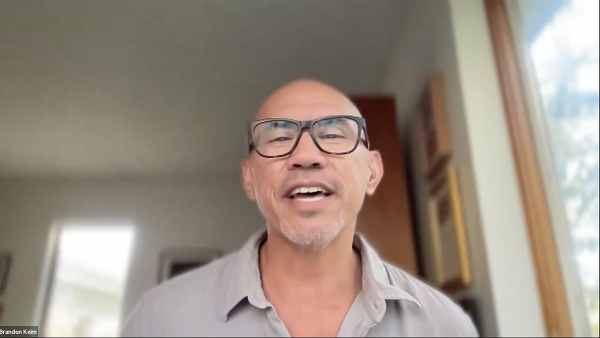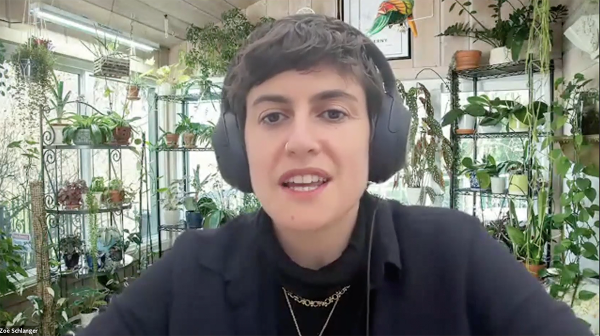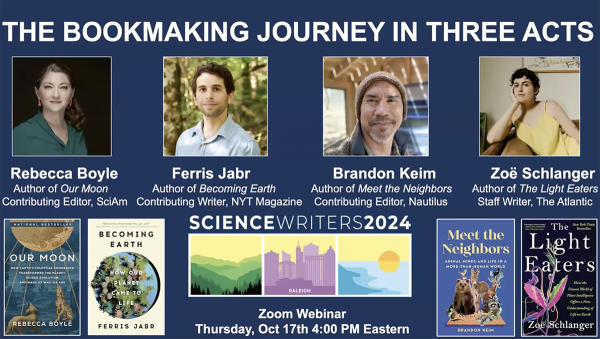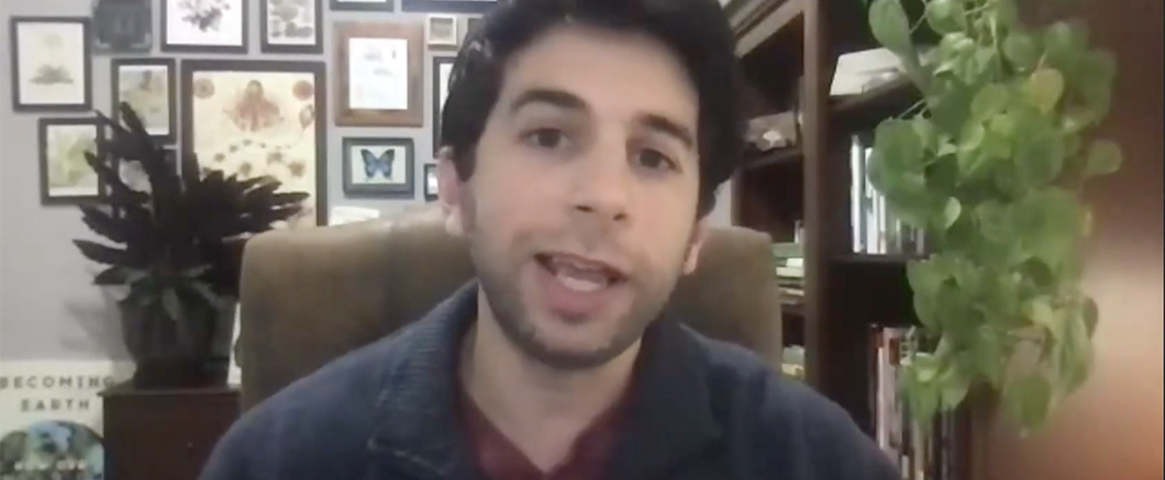Writing a first book is a dream for many, but few anticipate the challenges at every stage — finding an agent, securing funding, and managing publicity. At ScienceWriters2024, panelists shared strategies for navigating these hurdles during "The Bookmaking Journey in Three Acts: A Guide for Debut Authors" NASW workshop, held virtually on Oct. 17.
Organized and moderated by Ferris Jabr, author of Becoming Earth: How Our Planet Came to Life and contributing writer for The New York Times Magazine and Scientific American, the online discussion featured Brandon Keim, contributing editor at Nautilus, and Zoë Schlanger, staff writer at The Atlantic. Jabr moderated in place of author Ben Goldfarb, who was originally scheduled to appear.
The first step in crafting a book is finding the right idea. For Schlanger, inspiration came while covering climate change. Disheartened by the topic, she discovered botany and found it fascinating.
“I started writing some articles about it. But what made me realize it was a book idea was hearing debates from botanists. There was internal tension that I found so interesting”, she said. Her book, The Light Eaters, explores plant intelligence research, blending science with cultural and philosophical elements.
Keim faced skepticism from agents who believed his focus was overdone. However, he persevered. “I had agents tell me, 'There’s already been an animal intelligence book.' But that turned out to be untrue. A whole wave of animal intelligence books came out in the following years”, he shared. His book, Meet the Neighbors, explores the emotional and intellectual lives of animals.

Brandon Keim speaks during ScienceWriters2024 Early Access. (Vagner de Alencar for NASW)
Crafting a proposal
Once the idea is solidified, the next step is to create a solid proposal. For Schlanger, this stage was challenging but essential. “I started working with my agent right at the start of the proposal process, which isn’t always typical... It was a classic proposal, about 20,000 words,” she explained.
For Jabr, the proposal process was particularly demanding. “I spent about six months on mine, with a lot of back-and-forth to really get it into shape,” he said. “The more clarity you have going into the book-writing process, the better off you’ll be.”
Writing and funding the book
Writing the book presented its own set of challenges. Schlanger spent two and a half years on her manuscript, relying on residencies to stay focused. “It was hard to write large chunks of the book from inside my regular freelance reporting life. Residencies were a massive gift,” she shared.
Keim also used residencies to write, and he discussed how the financial aspect of the project played out. “My advance was about $60,000. My agent kept 15%, and the way it was structured was $17,000 upfront, then another $17,000 once the manuscript was finalized. I didn’t understand it at first, but learning how the payment structure worked was a surprise”, he explained.
Jabr stressed the value of sharing work early. “I was extra protective of my ideas and work in the very beginning, and had I opened them up a bit more, there were certain kinks I could have worked out earlier,” he said. He also highlighted the importance of writer groups and having a hands-on editor: “You want somebody who is very involved and engaged with your writing.”
Timing, Jabr noted, is another critical factor. He encouraged authors to think ahead about an ideal release date, considering major events like election years that could affect a book’s debut.

Zoë Schlanger speaks during ScienceWriters2024 Early Access. (Vagner de Alencar for NASW)
Navigation publicity and marketing
For many debut authors, publicity, and marketing are unfamiliar territories. Schlanger recalled the intense preparation before her book’s release. “Your publicist team will try to book you on radio shows, TV, and maybe written interviews. It was exhausting but incredible,” she said.
Meeting readers during events, however, was the highlight for her. “The most gratifying part was meeting readers for the first time... and hearing their life stories. It was amazing.”
Keim shared a similar sentiment. “I knew that a great deal of the publicity responsibility would fall on me, but I’m really thankful for the publicity team. It’s just the nature of the business now.”
Reflecting on the process, Jabr noted the importance of discussions like these. “We have so much to learn from each other by comparing experiences. The publicity and marketing phase, I completely agree, can be very harrowing and stressful, partly because it’s so unfamiliar for a debut author,” he said.
From idea to publication, the panelists demonstrated that writing a first book is a complex, often overwhelming journey, but one that is deeply rewarding when supported by a strong community and careful planning.

A screenshot of the session title slide during ScienceWriters2024 Early Access. (Vagner de Alencar for NASW)
Vagner de Alencar (@vagnerdealencar) is a co-founder of Agência Mural, a nonprofit news organization focused on covering underserved communities in the São Paulo metropolitan area in Brazil. He is also a current fellow at the Hubert Humphrey Fellowship program at Arizona State University.
This ScienceWriters2024 conference coverage article was produced as part of the NASW Conference Support Grant awarded to de Alencar to attend the ScienceWriters2024 national conference. Find more 2024 conference coverage at www.nasw.org
A co-production of the National Association of Science Writers (NASW), the Council for the Advancement of Science Writing (CASW), and the Science Communicators of North Carolina (SCONC), the ScienceWriters2024 national conference featured an online portion Oct. 16-18, followed by an in-person portion held in Raleigh, N.C., Nov. 8-11. Follow the conversation via #SciWri24 on Bluesky and on LinkedIn.
Founded in 1934 with a mission to fight for the free flow of science news, NASW is an organization of ~2,400 professional journalists, authors, editors, producers, public information officers, students and people who write and produce material intended to inform the public about science, health, engineering, and technology. To learn more, visit www.nasw.org and follow NASW on LinkedIn and Bluesky. And join us in celebrating #NASW90th.
Credits: Reporting by Vagner de Alencar; edited by Ben Young Landis. Screenshots by Vagner de Alencar; edited by Ben Young Landis




